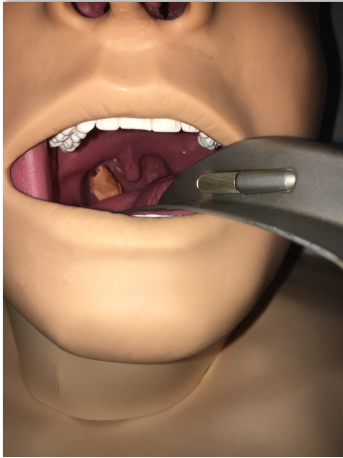2019/01/13

Oropharyngeal hemorrhage is a serious complication of oropharyngeal tumor that occurs instantly without any warning and may result in airway obstruction and respiratory distress. The bleeding, if not controlled effectively, can be life-threatening. The management of such cases without prior experience can make the situation too complex. Considering the critical nature of such bleeding, a simulation scenario was created where the junior Otolaryngology residents (interns) could learn to manage the patients with oropharyngeal hemorrhage safely and properly interact with the fellow healthcare providers.
This simulation scenario was designed and developed by a team of senior medical professionals from New York, led by Joshua Feintuch. A detailed article of the simulation program is published in the Archives of Otorhinolaryngology-Head & Neck Surgery Journal.
For a new intern, while facing a real clinical situation and a real patient, the technical skills and the situation-based decisions will cause severe stress and may lead to physician-errors causing harm to the patients. The situation will be worse, particularly when encountering a surgical or otolaryngology case, which requires specialized skills to be acquired from real clinical experience. In such situations, the specialized skills and knowledge gained from the simulation and boot camp training will come to their rescue.
The unique feature of this simulation scenario is the setup and use of the mannequin. The electronic simulator Laerdal ALS Mannequin is used in the scenario, which can breathe, talk, produce heartbeats and lung sounds, and display vital signs. Suitable and effective techniques are used to facilitate bleeding. Necessary equipment and accessories are provided for the mannequin setup and the oropharyngeal bleed simulation.
Once the setup is complete, the learner can start managing the oropharyngeal bleeding as per specific guidelines provided during the training. After completion of the scenario, the participants fill in a 5-point Likert survey to evaluate the benefits of the scenario.
Simulation-based training has been proven to be very effective in the medical field, especially in Otolaryngology. Studies have shown that through proper simulation and boot camp training, the residents develop sufficient knowledge, practical skills, as well as self-confidence to handle real clinical situations with real patients.
The emergency situations like oropharyngeal bleeding must be identified and immediate action should be taken to prevent blood loss and asphyxiation with utmost caution to avoid any serious risk to the patient. In such complicated situations, endotracheal intubation will aggravate the bleeding process making the airway management more problematic. Hence, in such patients, the nasotracheal intubation is found to be the safest way for effective airway management.
The oropharyngeal simulation scenario developed by Joshua Feintuch and teammates is realistic and helps the junior residents to systematically involve in the crucial decision-making process in a safe atmosphere to attain the necessary knowledge and skills to manage the patients safely. The simulation increases the confident levels of the residents and helps them to survive any stressful situation. During the last two years, 8 interns completed the training. In the 5-point Likers scale survey filled by the participants to assess the program benefits, an average score of 4.7 was attained.
Joshua Feintuch, Jeremy Feintuch, Emily Kaplan, Merona Hollingsworth, Christina Yang, Marc J Gibber. Novel Otolaryngology Simulation for the Management of Emergent Oropharyngeal Hemorrhage. Archives of Otorhinolaryngology-Head & Neck Surgery 2018;2(1):3. [View Article]